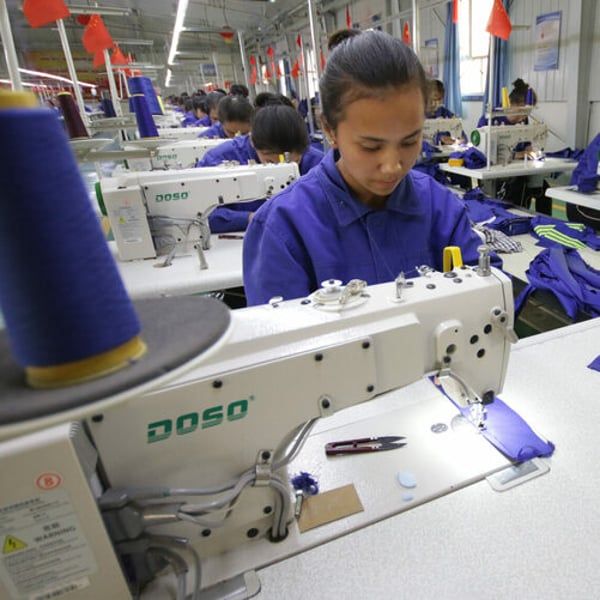Translated by
Nicola Mira
Published
May 18, 2024
On Thursday, May 16, US authorities announced that they had blocked all imports from 26 Chinese textile companies, as part of their efforts to prevent forced labor production by members of the Uyghur community from entering the US supply chain. USA.
These companies, mainly cotton merchants and warehouses, are now included on a list of companies targeted by the Uyghur Forced Labor Prevention Act, passed in the United States in 2021 in response to what the US government considers a genocide of Muslim minorities in China's Xinjiang province.
Washington has accused Beijing of setting up forced labor camps in western China's Xinjiang province, perpetrating abuses against minority Muslim communities, including Uyghurs. China has refuted the accusations and denied abuses, presenting its highly official campaign as a policy to integrate the Muslim minority into society through work.
While most of the Chinese cotton companies on the list are based outside of Xinjiang, they source cotton from that province, the U.S. Department of Homeland Security said in a statement.
China accounts for nearly 25% of global cotton production, with around 20% coming from crops grown in Xinjiang province. As some Chinese cotton specialists told FashionNetwork.com in March, cotton banned by the US has largely been redirected to the domestic market.
A spokesperson for the Chinese embassy in Washington criticized the recent decision by the US administration. “This so-called 'prevention law' is simply an instrument used by American politicians to create disruptions in Xinjiang and stifle China's growth,” he said.
A suspicion fueled by the recent decision by the United States to increase customs duties on a long list of products, including goods belonging to the textile and clothing categories. A choice that was unequivocally condemned by the American Apparel & Footwear Association (as reported in this article).
Since the Xinjiang blacklist was introduced, the US administration has restricted imports from a total of 65 Chinese companies, according to the Department of Homeland Security.
But the fate of the Uyghurs remains a major blind spot for the international community, NGOs and the textile industry itself. A report published in late 2020 by the Australian Institute for Political Strategy warned that Uighurs are being displaced in large numbers across China and forced to work in textile factories that have been transformed into closed detention centres. This makes it more difficult to gauge the true extent of the link between Xinjiang and textile and clothing production, of which China is by far the world's largest exporter.
(with Reuters)
Copyright © 2024 FashionNetwork.com All rights reserved.












